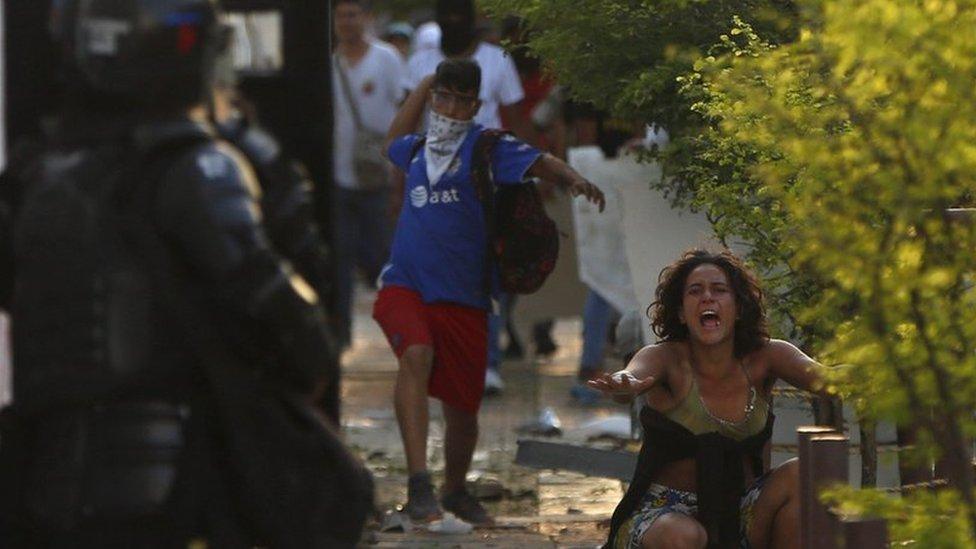Dilan Cruz, Colombian teenager injured by police projectile, dies
- Published
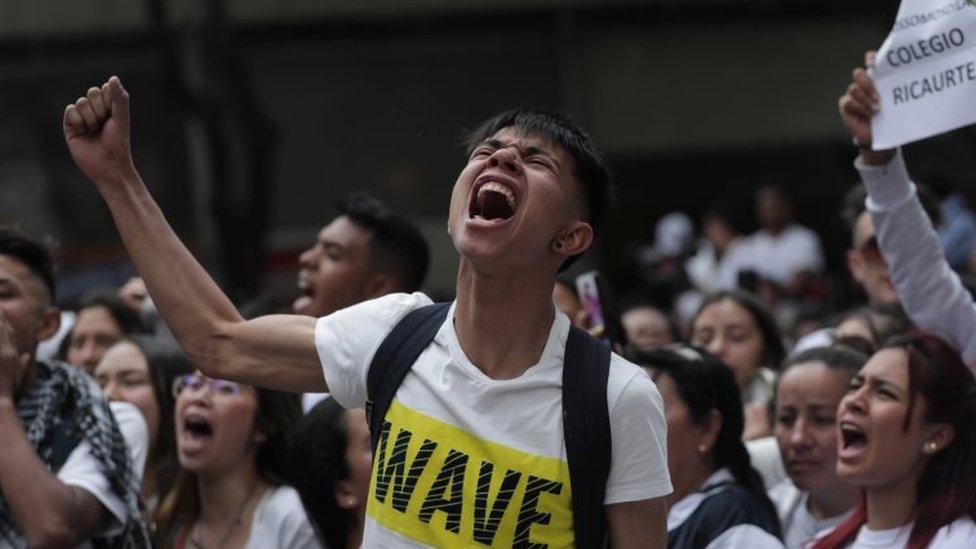
Fresh vigils and marches were triggered after the incident with Dilan Cruz
A Colombian teenager who took part in a protest march to demand better access to education has died, two days after he was hit on the head by a projectile fired by riot police.
The death of Dilan Cruz has caused outrage and sparked fresh marches by protesters denouncing what they said was a heavy-handed police response.
President Iván Duque said he deeply regretted Dilan Cruz's death.
Mr Duque is due to meet leaders of the protests later on Tuesday.
Who was Dilan Cruz?
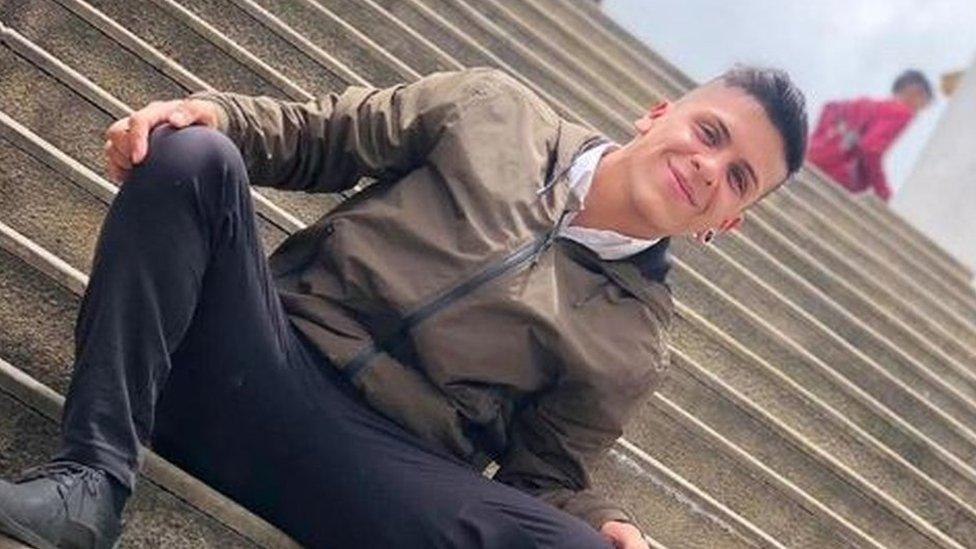
Dilan Cruz would have graduated from high school on Monday
Dilan Cruz was an 18-year-old pupil who was due to graduate from high school in Bogotá on Monday.
Friends said he wanted to study business administration but was in need of a grant to do so.
He joined a protest march in the capital on Saturday to highlight the difficulties students like him had accessing higher education, according to his friends.
What happened?
Video taken at the march shows the moment Dilan Cruz was hit.
A member of the riot squad marching down the road parallel to the demonstrators can be seen firing his weapon towards those protesting.
Seconds later, Dilan Cruz can be seen collapsed on the tarmac after being hit in the head by a projectile. People can be heard screaming "they hit him, they hit him" while others shout "no violence".
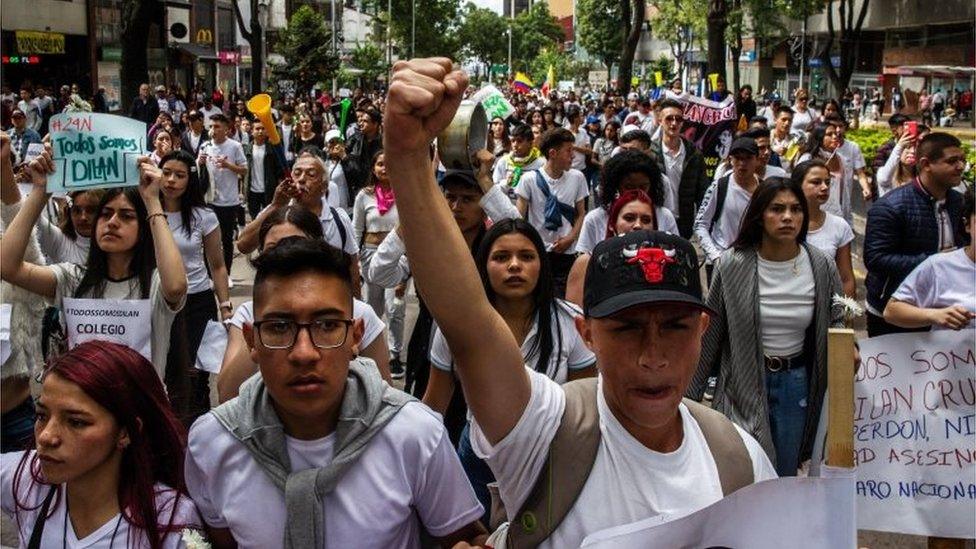
Students have been at the forefront of the protests
One of Dilan Cruz's friends told Colombian daily El Espectador that "we were marching and the Esmad (riot police) threw stun grenades and tear gas canisters at us".
"Dilan went to the front to kick back a tear-gas canister, because it had landed next to old people, that's when he was shot at, they say it was a rubber bullet," his friend added.
There have been conflicting reports on whether the projectile was a stun grenade, a tear-gas canister or a rubber bullet.
Paramedics managed to resuscitate Dilan Cruz at the scene before he was taken to hospital where Dr Juan Martínez diagnosed a traumatic brain injury caused by a "penetrating object".
His death was announced on Monday evening.
What has the reaction been?
Even before his death, people among them students from Dilan Cruz's school took to the streets in solidarity.
The zebra crossing where he collapsed became a gathering point with friends and relatives lighting candles and leaving flowers.
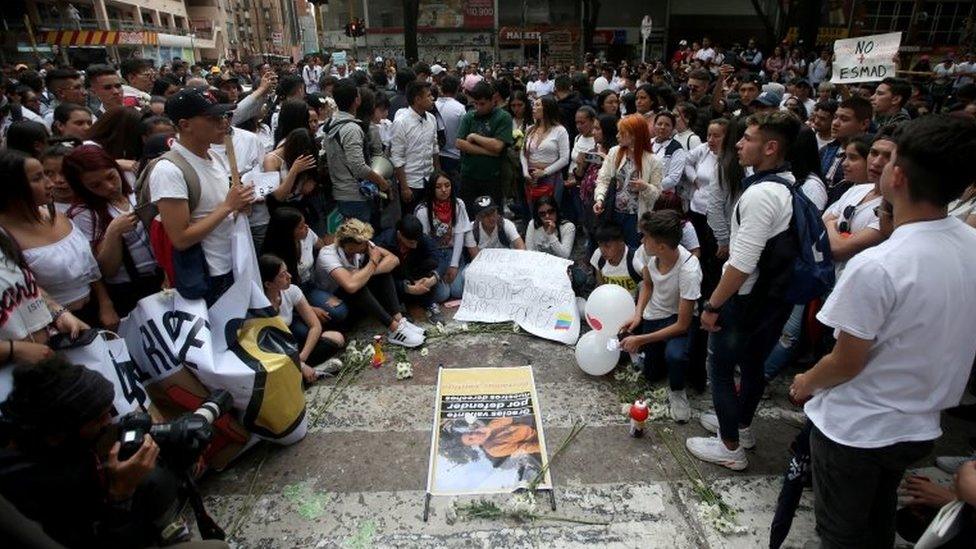
Vigils have been held at the spot where Dilan Cruz collapsed
On Sunday, a vigil was also held outside the hospital where he was being treated with people shouting "be strong, Dilan".


Following the announcement of his death, his name was tweeted more than 350,000 times in 24 hours with many expressing outrage.
There were also marches in different parts of the country with people shouting "Dilan didn't die, Dilan was killed".
Police Chief Óscar Atehortúa said the police officer involved in the incident had been suspended and would be investigated. The attorney-general's office has also opened an investigation.
Politicians including the mayor-elect of Bogotá, Claudia López, and current Mayor Enrique Peñalosa expressed their condolences to Dilan Cruz's family.
What's the background?
Dilan Cruz was the fourth person to be killed during anti-government protests which started with a march attended by 250,000 people in Bogotá on Thursday. The other three were killed on Thursday in incidents which according to the police involved looting.
Hundreds of demonstrators and more than 340 police officers have been injured in the protests which have been organised by students, civil society groups and trade unions.
Protesters scattered as police fired tear gas
Protesters' demands include better access to and funding of education as well as better implementation of the 2016 peace deal with left-wing Farc rebels and an end to the killings of social activists.
They also want the government to drop rumoured plans for a cut to the minimum wage, although the government has denied having such plans.
President Duque has called for a "national dialogue" to put an end to the protests.
"This national dialogue will result in long-term policies, and [steps] to accelerate the effectiveness of national and regional programmes, which will give us guidelines for a shared vision of the country," he wrote on Twitter, external.
He will meet protest leaders later on Tuesday for the first time since the marches began.

You may also be interested in:
What fuels the global protest movement?
- Published23 November 2019
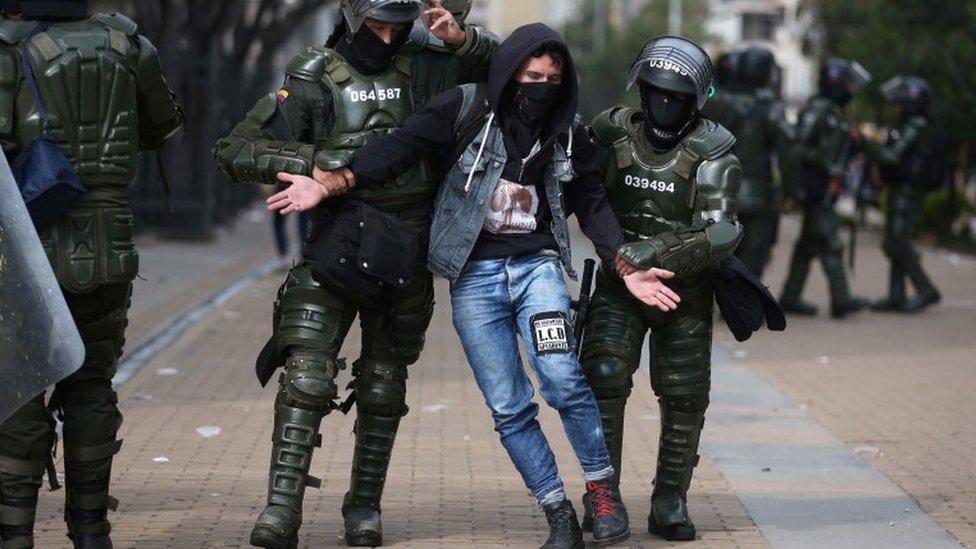
- Published23 November 2019
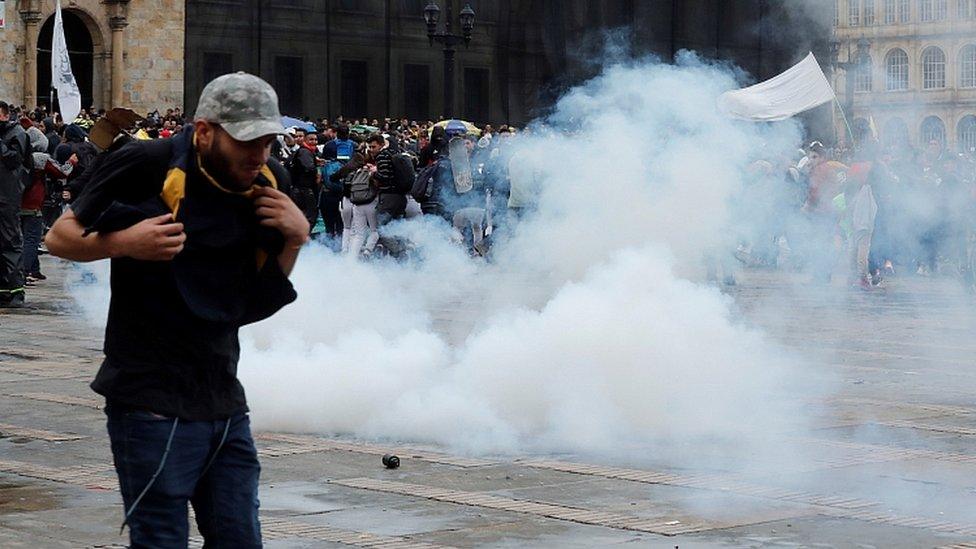
- Published22 November 2019
